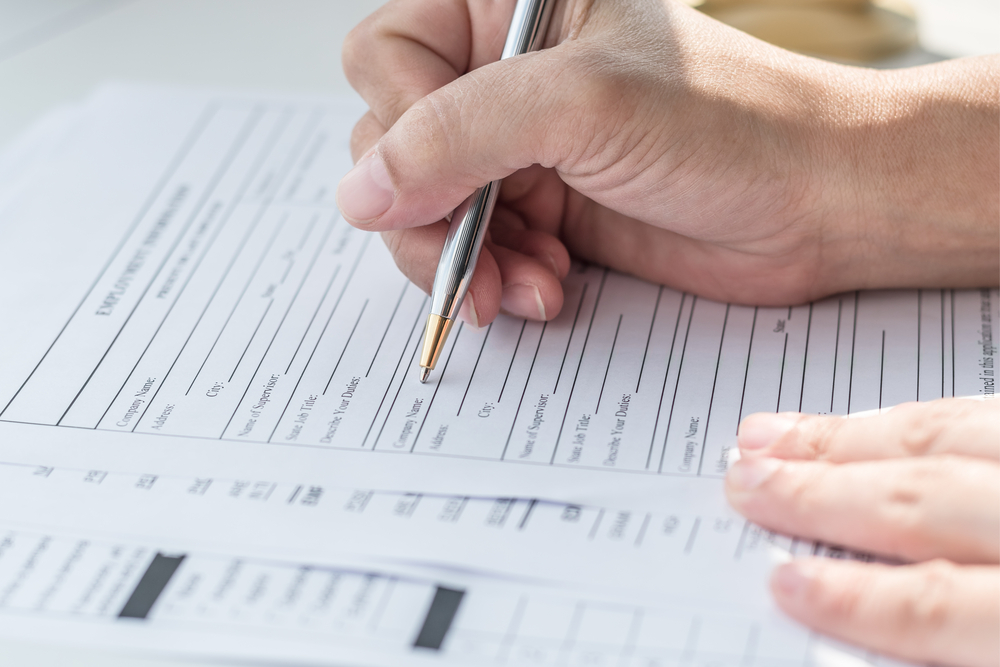COVID-19 pandemic unemployment assistance. As more Americans lose their jobs due to COVID-19 layoffs, pandemic unemployment assistance may help.
When the Coronavirus Aid, Relief, and Economic Security (CARES) Act was approved by Congress in late March, one of its most important initiatives was the Pandemic Unemployment Assistance (PUA). PUA has played a crucial role in financially assisting workers whose jobs have been affected by the Coronavirus/COVID-19 pandemic.
During this pandemic, the economy is undeniably suffering with about one million Americans filing first-time unemployment claims every week. Since the PUA can be a critical resource for Americans in need, we’ve broken down who it helps, how much your employees could possibly receive, and the process of applying.
Note that PUA access will vary based on which state your employees reside in. They can contact their state’s labor department to learn more about their individual situation.
Q: What is Pandemic Unemployment Assistance and What Does It Provide?
A: PUA is a form of government aid designed to increase access to unemployment benefits for Americans who have lost work due to the COVID-19 pandemic. The purpose of PUA is to expand who is able to receive unemployment assistance, extend the weeks that workers can receive aid and, in specific cases, increase the amount of money given to recipients.
Under the CARES Act, states are allowed to extend unemployment benefits by up to 13 weeks under the new Pandemic Emergency Unemployment Compensation (PEUC) program. PEUC benefits are available for weeks of unemployment beginning after the state implements the new program and ending on or before December 31, 2020.
Q: Who Is Eligible for Pandemic Unemployment Assistance?
A: The majority of Americans who have lost employment due to the COVID-19 pandemic are eligible to receive PUA. According to the CARES Act, employees usually qualify if:
- Employees are sick with COVID-19 or have been exposed to the Coronavirus and are unable work
- Employees have to care for anyone in their immediate family who has contracted the Coronavirus and are unable work
Employees also potentially qualify if they are prevented from working because of a quarantine, or if they are in a high-risk group and a medical professional has recommended that they self-quarantine. However, employees are likely ineligible for PUA if they are able to work remotely and continue to receive a paycheck from their employers.
Q: Do Self-Employed People Qualify for Pandemic Unemployment Assistance?
A: Typically yes, but PUA access differs by state. In most states, as long as employees are not eligible for regular unemployment benefits and are unable to work because of COVID-19, they generally qualify for PUA.
For self-employed workers and independent contractors, PUA offers up to 39 weeks of benefits, some of which may be available retroactively starting with weeks of unemployment beginning on or after January 27, 2020, and ending on or before December 31, 2020. The amount of aid self-employed individuals can receive varies state by state and is based on prior benefit amounts delineated by their state’s unemployment laws.
Q: Do Gig Economy Workers Qualify for Pandemic Unemployment Assistance?
A: Generally, yes. Again, it varies by state, so employees need to check with their state’s labor department for information on their individual situation.
The CARES Act says that gig economy workers — rideshare drivers, food and grocery delivery workers, etc. — potentially qualify for PUA if they cannot work because of the pandemic. For example, if a gig economy worker is unable to work after contracting COVID-19 or after developing complications after recovering from COVID-19, they might qualify for PUA.
They may also qualify if they lose the majority of their customers due to government-recommended social distancing or if municipal orders restrict movement in a way that makes their business unsustainable.
Q: How Do Employees Apply for Pandemic Unemployment Assistance?
A: Employees can file a claim with their state’s unemployment insurance program as soon as they become unemployed. Each state will have a specific process to determine who can receive PUA. Some states will have employees file a regular unemployment claim first, while others will have them make a PUA-specific claim first.
Note that employees can file a claim in any state they have worked, which can be done over the phone, online or in person, depending on the state. Since PUA benefits are different in every state, it’s worth looking into the aid each state offers when deciding where to file a claim. If employees are going to file for unemployment benefits in a state that’s different from where they live, they’ll need to contact the unemployment agency in their home state to find out how.
Additionally, it’s important employees fill out their claims carefully because errors might delay the process and prevent them from receiving their benefits on time.
Q: How Much Money Will Employees Receive from Pandemic Unemployment Assistance?
A: Employees’ PUA benefits are calculated using many factors, including how much money they used to earn when working and the unemployment insurance laws of the state where they reside. For example, the minimum amount employees can receive weekly in Alabama is $114, whereas in Hawaii it’s $263.
However, if employees qualify for PUA, they are guaranteed a weekly benefit of $600 from the federal government as part of the CARES Act. Regardless of how much employees end up receiving from their state, they will receive this $600 in addition to their state benefits. These unemployment benefits are still subject to federal income taxes and most state income taxes.
Q: When Will Employees Receive Their Pandemic Unemployment Assistance?
A: It will vary by state. Since states are overwhelmed with so many people filing for unemployment, anticipate a delay.
Q: Can Employees Quit Their Jobs to Get Pandemic Unemployment Assistance?
A: Most likely no. PUA is meant to provide assistance to Americans who have lost their job through no fault of their own. If employees intentionally quit their jobs in order to receive PUA (or any unemployment benefits), it is considered fraud.
However, the CARES Act states that employees might still qualify if they quit for a reason directly tied to COVID-19. While this does not include resigning because they’re afraid of contracting COVID-19 at work, it might cover resigning because a medical professional has determined they are a high-risk individual and should self-quarantine. Employees can also file a complaint with the Occupational Safety and Health Administration (OSHA) if they think their employer is not adhering to the standards determined by OSHA.
Additionally, the CARES Act says that anyone who receives regular unemployment compensation must accept any offer of suitable employment. For example, if employees were furloughed when their place of employment closed because of the COVID-19 pandemic, they typically have to go back to work as soon as their employer reopens. If they don’t, it could lead to a termination of the PUA benefits they were receiving.
If your employees have lost work due to COVID-19, PUA can potentially provide some financial relief. PUA varies state by state, so have them check with their state about how they are implementing PUA. Employees can find the contact information for their state unemployment insurance office here.
More on Topics Related to the Coronavirus Pandemic and Unemployment
Don’t Fall for a COVID-19 Scam: What to Look for
Coronavirus/COVID-19: Where to Find Assistance
CARES Act: 4 Key Pieces for You





